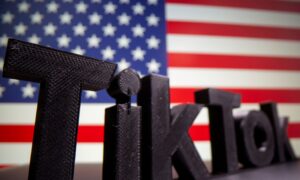TikTok to Enter US E-Commerce With Seattle ‘Fulfillment Center’
TikTok, owned by ByteDance in China, will build a global fulfillment center in Seattle, and set up an e-commerce supply chain system, said its job listings on LinkedIn, as first revealed by Axios on Oct. 11.The ads in the past two weeks invited applicants for the “planning and solution design of fulfillment centres,” tasked with diverse fields in logistics, supply chain, and inventory management. TikTok also has offices in New York and Los Angeles. Claiming TikTok is the ideal platform to provide a better e-commerce experience to users, with its more than one billion online users, the company’s ads suggest it can compete with other shopping platforms such as Amazon and Walmart. New Competitor in E-Commerce Considering warehousing is an expensive undertaking as you vie with established competitors, Neil Saunders, managing director for GlobalData Retail, believes the massive audience and customer base of TikTok “could pose a threat to incumbents and prove to be a highly disruptive force.” However, others have a different view. “It’s idiotic,” said Wedbush analyst Michael Pachter. “They have no chance of competing and it is a complete waste of money and time,” according to The Associated Press. According to Insider Intelligence, there is a $37 billion market on the U.S. social media sites, known as social commerce, and about 23.7 million U.S. customers will make at least one purchase through TikTok in 2022. However, the London-based “TikTok Shop,” its first QVC-style shopping outside Asia launched in 2021, was troubled by poor performance due to low and nascent “general consumer awareness and adoption,” reported the Financial Times in July. (L-R) YouTube Chief Product Officer Neal Mohan, TikTok Chief Operating Officer Vanessa Pappas, and General Manager of Twitter’s Bluebird Jay Sullivan testify during a hearing before Senate Homeland Security and Governmental Affairs Committee in Washington on Sept. 14, 2022. (Alex Wong/Getty Images) The innate vulnerabilities in the TikTok system have caused security concerns when the app is downloaded by customers, as The Epoch Times reported previously. Israel cybersecurity firm Checkpoint found a series of flaws that could enable attackers to manipulate user content, upload and delete videos, and reveal sensitive data such as birthdate, payment information, and email address. In June, BuzzFeed News reported that leaked audio showed that engineers of ByteDance, TikTok’s parent company based in Beijing, had repeatedly accessed nonpublic data about U.S. TikTok users. “Any U.S. user data that can be accessed by a ‘private’ company in China can undoubtedly also be accessed by the Chinese Communist Party,” Rep. Lee Zeldin (R-N.Y.) told The Epoch Times at the time. Follow Mary Hong has contributed to The Epoch Times since 2020. She has reported on Chinese human rights issues and politics.

TikTok, owned by ByteDance in China, will build a global fulfillment center in Seattle, and set up an e-commerce supply chain system, said its job listings on LinkedIn, as first revealed by Axios on Oct. 11.
The ads in the past two weeks invited applicants for the “planning and solution design of fulfillment centres,” tasked with diverse fields in logistics, supply chain, and inventory management. TikTok also has offices in New York and Los Angeles.
Claiming TikTok is the ideal platform to provide a better e-commerce experience to users, with its more than one billion online users, the company’s ads suggest it can compete with other shopping platforms such as Amazon and Walmart.
New Competitor in E-Commerce
Considering warehousing is an expensive undertaking as you vie with established competitors, Neil Saunders, managing director for GlobalData Retail, believes the massive audience and customer base of TikTok “could pose a threat to incumbents and prove to be a highly disruptive force.”
However, others have a different view. “It’s idiotic,” said Wedbush analyst Michael Pachter. “They have no chance of competing and it is a complete waste of money and time,” according to The Associated Press.
According to Insider Intelligence, there is a $37 billion market on the U.S. social media sites, known as social commerce, and about 23.7 million U.S. customers will make at least one purchase through TikTok in 2022.
However, the London-based “TikTok Shop,” its first QVC-style shopping outside Asia launched in 2021, was troubled by poor performance due to low and nascent “general consumer awareness and adoption,” reported the Financial Times in July.

The innate vulnerabilities in the TikTok system have caused security concerns when the app is downloaded by customers, as The Epoch Times reported previously.
Israel cybersecurity firm Checkpoint found a series of flaws that could enable attackers to manipulate user content, upload and delete videos, and reveal sensitive data such as birthdate, payment information, and email address.
In June, BuzzFeed News reported that leaked audio showed that engineers of ByteDance, TikTok’s parent company based in Beijing, had repeatedly accessed nonpublic data about U.S. TikTok users.
“Any U.S. user data that can be accessed by a ‘private’ company in China can undoubtedly also be accessed by the Chinese Communist Party,” Rep. Lee Zeldin (R-N.Y.) told The Epoch Times at the time.












